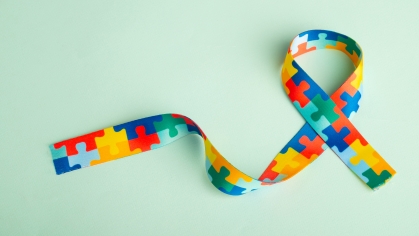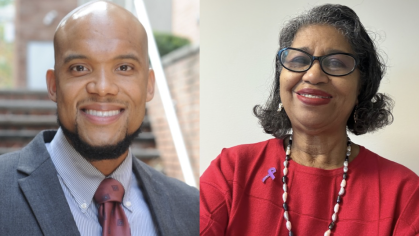Sarah McMahon, Associate Professor and Director of the Center for Research on Ending Violence, shares what International Women's Day means to her and ideas for how social workers can bring awareness to women's empowerment beyond this day.
Tell us a bit about your journey to social work.
While in college, I participated in an immersive summer service program that allowed me to intern in a shelter for mothers and their children, which was a powerful learning experience and ignited my interest in better understanding the impact of domestic violence, sexual assault, and other forms of violence - as well as solutions. I was raised by a feminist social worker mother who also encouraged me to consider the role of gender in understanding discrimination and social justice. After graduating with my MSW, I provided clinical services to individuals who experienced various forms of violence and also directed a violence prevention program. These sparked several questions for me that I wanted to answer through conducting community-engaged research.
What is the significance of this day for you?
International Women's Day is a reminder to recognize and celebrate the gains that we have made towards creating a more equitable world, as there are many people engaged in incredibly innovative, important and impactful work that has helped us address disparities related to gender and other identities. However, the day is also a reminder that we still have quite a bit of work to do. When we think about the role of gender, it needs to expand beyond dichotomized categories. Around the globe, women, non-binary individuals and transgender people are often still blocked from reaching their full potential by obstacles like violence and harassment, pay inequity, underrepresentation in leadership positions, and barriers to education. These inequities are exacerbated for people minoritized by structural forms of oppression, such as racism, homophobia, and ableism. Work on gender must not be siloed and must accompany efforts to dismantle forms of structural oppression.
What are some ways people can commemorate International Women’s Day?
International Women's Day is a reminder to pause and consider how we as individuals and as members of communities, organizations, and society as a whole can work towards social justice and equity. The day can prompt us to remind our children, families, friends, co-workers and ourselves that we all have a role to play in creating communities that are inclusive, safe, and welcoming to people of all genders and identities. Here at Rutgers, we have many opportunities for people to engage in this work. Our Center for Research on Ending Violence is one of ten centers at Rutgers-New Brunswick that are part of the Institute for Women's Leadership, and I encourage people to visit their website and learn more about the work happening here and find out more about how they can become involved: https://iwl.rutgers.edu/. For more information about International Women's Day and ways to become involved in raising awareness against gender bias and taking action for equity, visit https://www.internationalwomensday.com/.
What can the social work profession or social workers do to bring awareness to women's empowerment beyond this day?
To be honest, I appreciate the ability of these specially dedicated days to raising awareness about important issues such as gender inequality, but I hope that they can serve as a springboard for continued action beyond one day. Social workers are uniquely positioned to help work for social justice at all levels of the social ecology: individual, group, organizational, institutional and societal. With our micro and macro focus, social workers can respond to the needs of individuals impacted by gender inequality and other forms of structural oppression while also advocating for programs and policies to address their systemic nature and deep roots. Social workers use a strengths-based perspective, which allows us to focus on the assets and unique contributions of individuals and communities to help us build a more just, equitable society.
This story was created in partnership with Rutgers School of Social Work's Inclusion, Intersectionality, Diversity, Equity, and Advancement (IIDEA) Committee in support of our commitment to diversity, equity, and inclusion.



